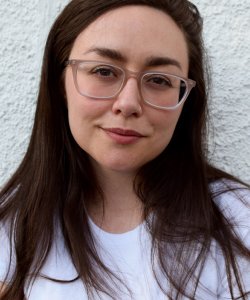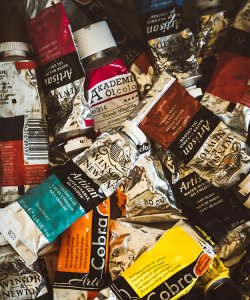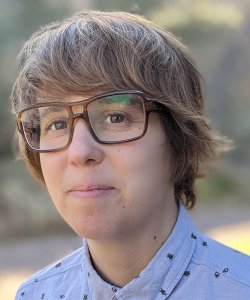Ten Questions for Caylin Capra-Thomas

“I needed to live all of the change and movement and multiplicity that the book wound up being about in order to write it.” —Caylin Capra-Thomas, author of Iguana Iguana
Jump to navigation Skip to content

“I needed to live all of the change and movement and multiplicity that the book wound up being about in order to write it.” —Caylin Capra-Thomas, author of Iguana Iguana

The author of Took House explores what happens when poets permit themselves to write about the same subject multiple times.

The author of Took House explores the importance of “strangeness” in poetry and offers a method for capturing this quality by combining two different draft poems.

“This book really fought me, or I fought it, for the first couple of years.” —Safia Elhillo, author of Girls That Never Die

The author of Took House explores a kinder approach to revision, in which language cut during one editorial process may be saved as material for a new writing project.

The author of [WHITE] considers how writers might take inspiration from visual artists in their approach to revision, pushing beyond surface editing to “see” their work afresh.

“I have to lock up my phone every day—in a box designed for locking up cookies—during the hours I’m writing. Text messages ruin me.” —Lydia Conklin, author of Rainbow Rainbow

“If I had known about the twists and turns beforehand, I like to think I would have kept going, but maybe it’s better not to know.” —Vanessa Hua, author of Forbidden City

“Adjust one small plot point in the second half of the book, and you realize you’ve got to go back to the beginning and account for that change.” —Soon Wiley, author of When We Fell Apart

The author of Country of Origin looks back on the fifteen years she spent working on her debut novel.